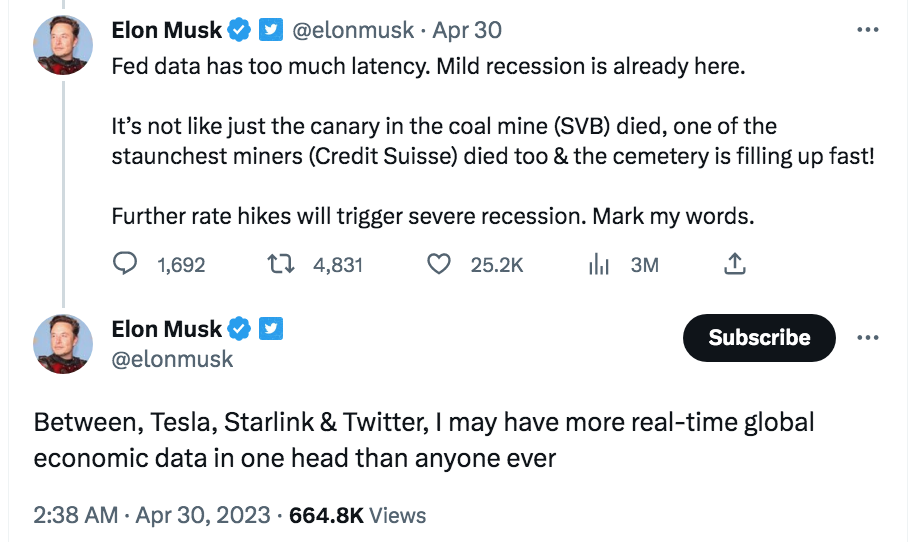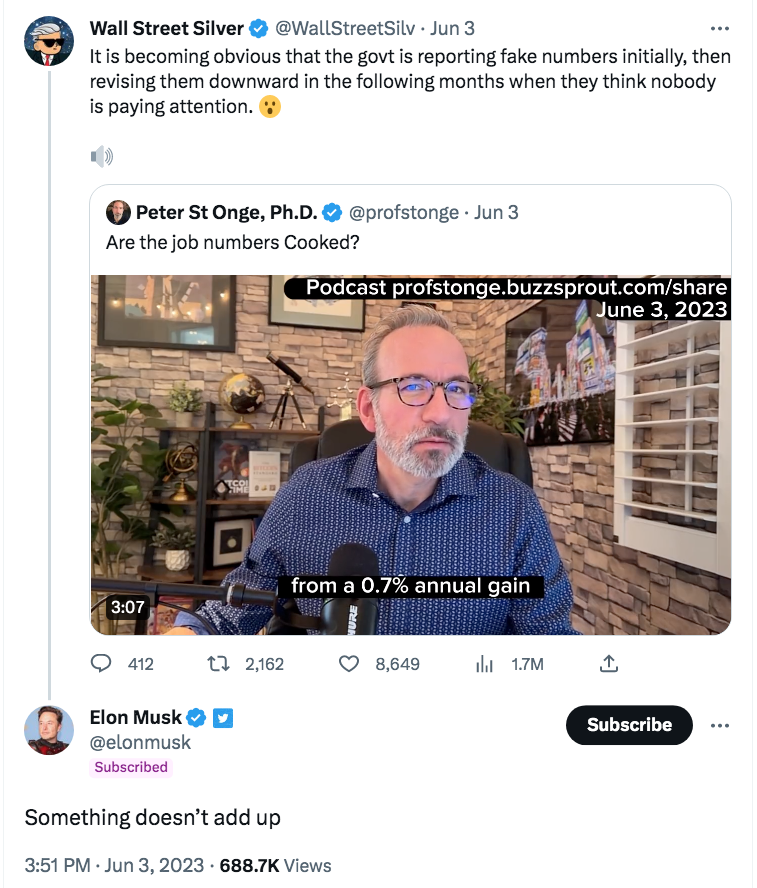You predicted a recession and it didn’t happen? You are about to be interviewed by CNBC? Have no fear, you can always claim that there has been a “rolling recession”. It’s like a get out of jail free card.
Rolling recessions do not exist. The fact that weakness in housing was followed by weakness in manufacturing and then a few layoffs in tech doesn’t mean a thing if the overall economy continues booming. Claims of rolling recessions are used merely as an excuse for failed macroeconomic predictions that flowed from bad models. Here are a couple reasons why they don’t exist:
1. It’s true that recessions often involve fairly modest reductions in GDP, say 2% or 3%. But that does not imply that a similar decline in a single sector is equally significant. Individual sectors are far more volatile that overall GDP, which aggregates all sectors of the economy.
Consider the following analogy. You meet two children, one of which is 3 inches taller than the other. Is that a significant difference? Does that sort of difference prove that one must be considerably older than the other? Not really, height varies a great deal from one person to the next. In contrast, if told that a class of 30 students had an average height that was 3 inches higher than another class of 30 students in the same school, you can be pretty confident that the taller class is in a higher grade. The law of large numbers is quite powerful.
Thus while a 2% or 3% fall in GDP is quite important, a 2% or 3% fall in housing or manufacturing is hardly worth commenting on. Those sectors are far more volatile than GDP. There is no sign of a significant fall in either construction employment or manufacturing employment.
2. Recessions are an aggregate phenomenon, and hence are quite distinct from economic shocks that only impact a single sector. Recessions are distinctive because they are the product of shocks that have broad effects across the entire economy. Even in an economy that is doing fine, some sectors will grow while others contract. To call this natural churn a “rolling recession” is to drain all meaning from the term “recession”.
It’s like when people talk about “eggflation”. Rising egg prices are certainly an interesting phenomenon, but they have nothing to do with the sort of inflation associated with a general depreciation in the purchasing power of money. (Except that portion of rising egg prices that reflect a rise in the overall CPI.)
Stop talking about “rolling recessions” and just admit that your 2022 recession call was wrong!
And please, when we finally do get a recession, don’t claim, “See, I called it.”
PS. According to Bloomberg, tech’s rolling recession is now over:
Thanks to AI, San Francisco’s Tech Companies Are Hiring Again
PPS. Paul Krugman has a column that discusses the way that tech entrepreneurs like Elon Musk confuse their own sector with the aggregate economy. Here are a few typical Musk tweets:

We may well have a recession. But no, a recession was not “already here” in April.
PPPS. And someone should tell Musk that when he’s wrong the gracious thing to do is admit the mistake, not attack the messenger:
